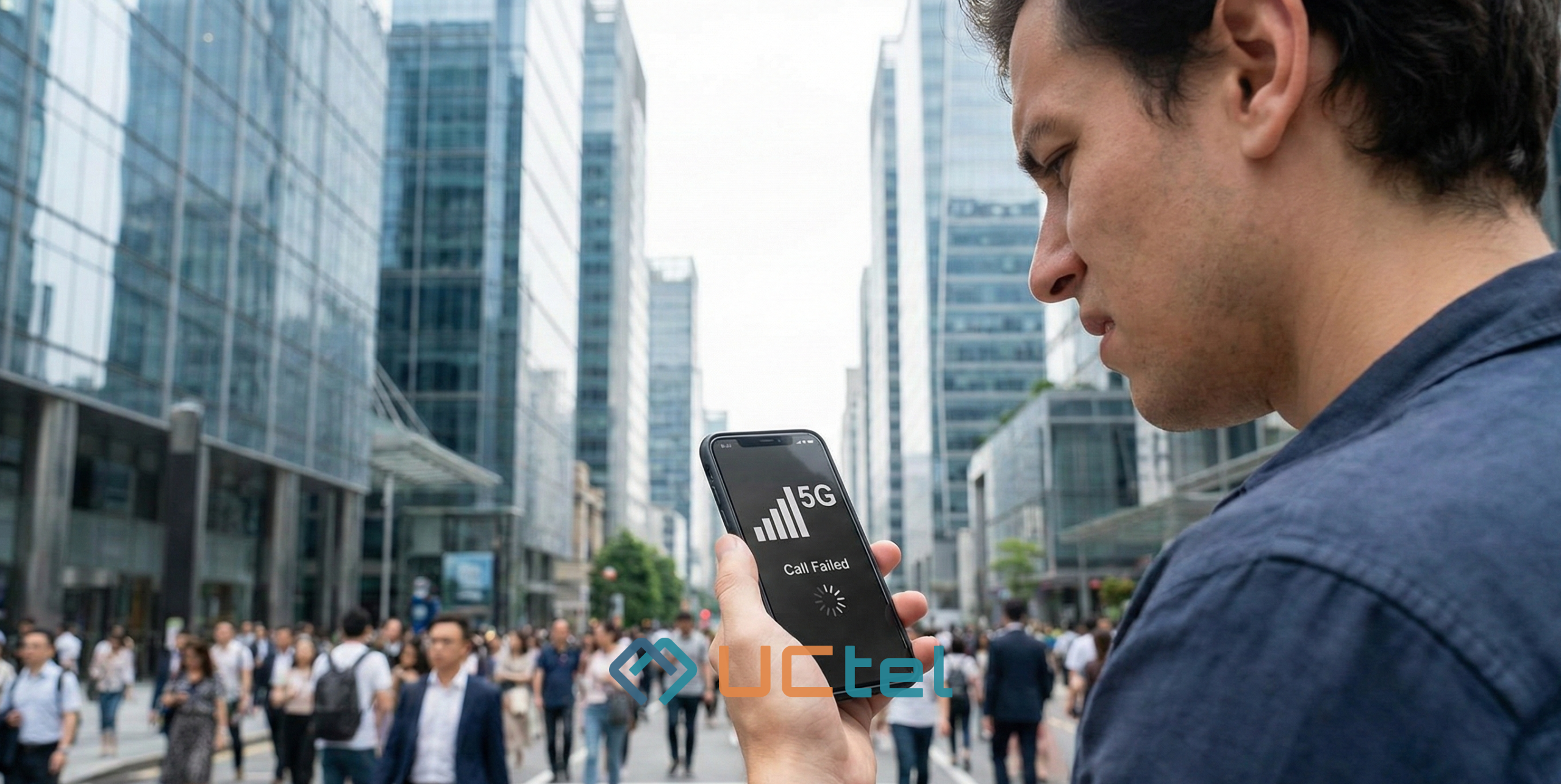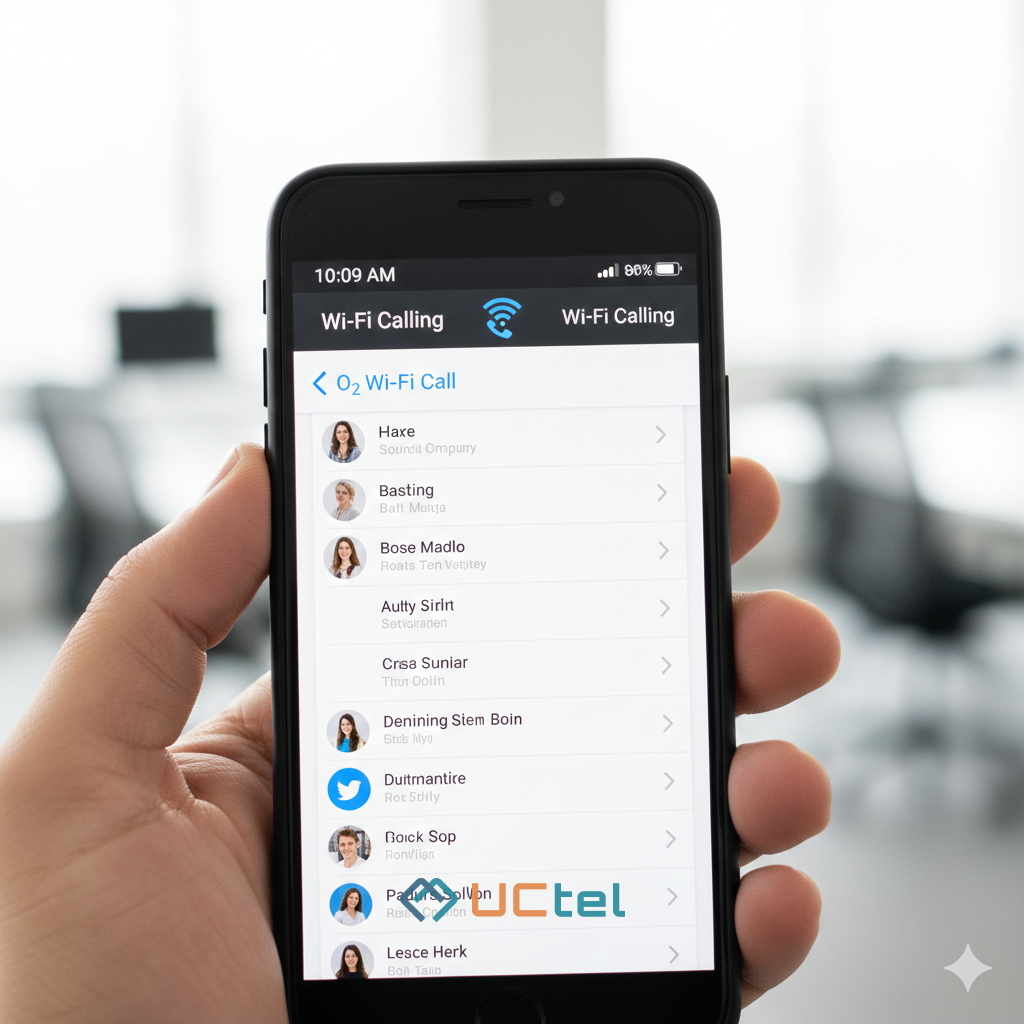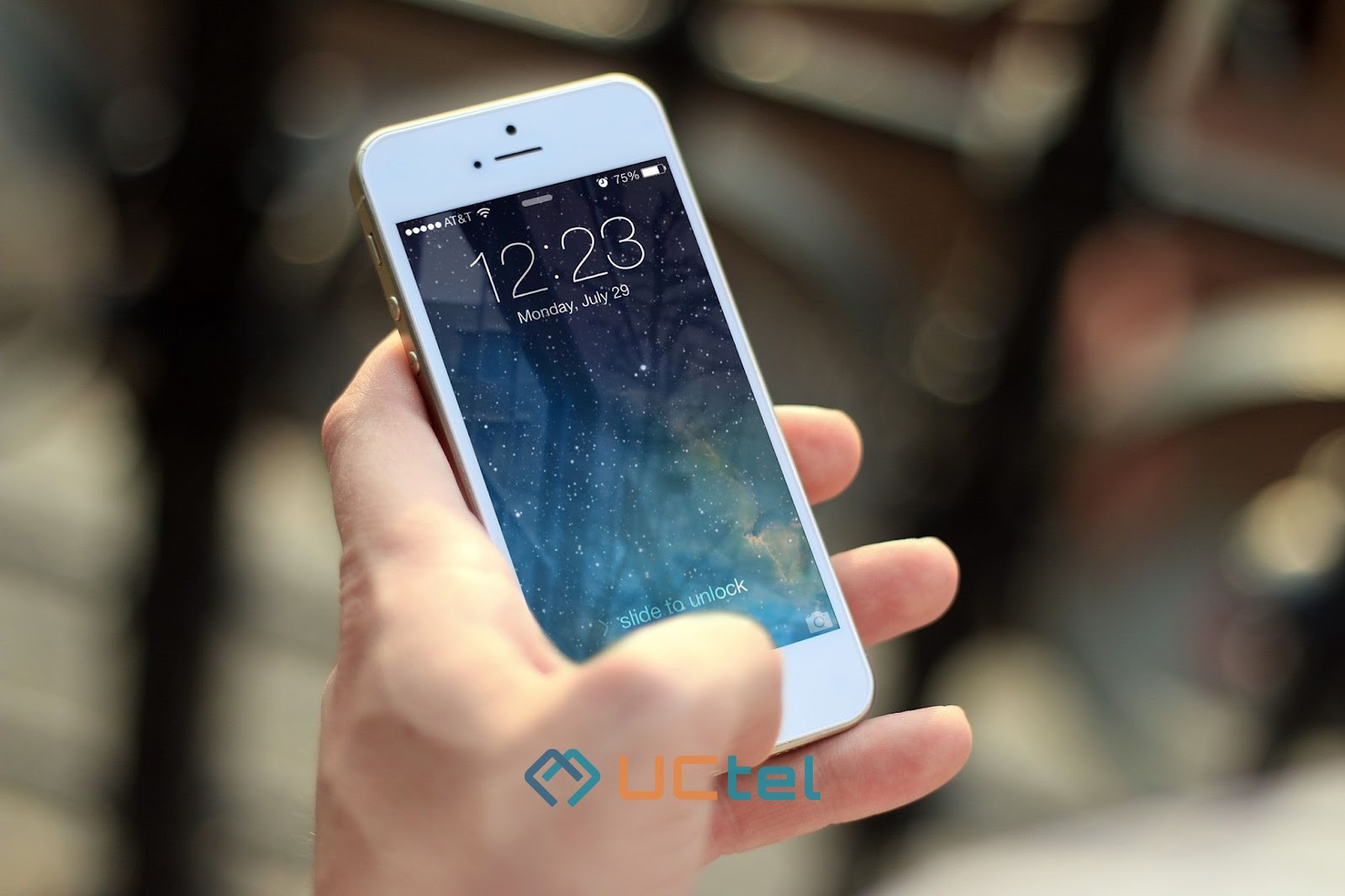10 Materials that Can Block Mobile Phone Signals in the Building

Table of contents
Have you ever wondered why your mobile signal seems to vanish the moment you step into your office or home? While modern mobile technology lets us talk to anyone, anywhere in the world, with crystal-clear sound and enjoy lightning-fast internet without wires, all those perks can disappear in an instant if the signal gets blocked. Natural elements like rain or foliage can attenuate signal strength up to -25dB, but those are not the biggest blockers. What blocks signals noticeably (-90dB and more) is building materials. For example, office owners with energy-efficient windows frequently report "blackout" zones where signals are almost nonexistent.
At UCtel, we know everything about different materials' impacts on mobile signal strength and how to neutralise those impacts and ensure consistent network connectivity and bandwidth inside various buildings. Let’s look at what blocks mobile phone signals and how to bypass those signal-blocking materials.
What Can Block Mobile Phone Signals?
The mobile signal is measured in dBm (decibel milliwatts). Typically, devices that support mobile communications operate at frequencies between -50 dBm and -120 dBm. If your mobile phone shows a full signal scale (-50 dBm) outside, and it immediately worsens inside the building (-90 dBm and lower), the chances are that the structure itself is jamming it. Let's look closer at the list of natural materials that block mobile phone signals in your home or office.
Wire mesh
Building materials containing wire or metal mesh, such as some types of reinforced concrete or metal screens, can weaken mobile signals or even create a dead zone. Even though modern 4G and 5G technologies are less affected by this obstruction, it still can be quite a problem in some remote areas.
Ceramic or porcelain tiles
Generally speaking, ceramic or porcelain tiles won't have any effect on signal strength. However, if they have some metallic elements or coatings, they become a material that can interfere with mobile phone signals. It won't block your connection entirely, but combined with other materials, it can degrade the quality of your calls up to 5 dB.
Mirrors
Although large mirrors are not commonly used as building materials, they can reflect and scatter mobile signals, which can cause signal problems in certain areas. For example, a large full-wall mirror in a gym is a material that reduces mobile signal. In such cases, a mobile signal booster for gyms can help improve connectivity and ensure uninterrupted communication.
Low-E glass
Low-E glass, or low-emissivity glass, is a type of green building material commonly used in office and residential buildings. The purpose of Low-E glass is to reduce the amount of heat that makes its way into a building through glass windows or doors, without minimising the amount of light. As a result, people inside the building can enjoy the coolness and save on energy bills.
Although Low-E glass has become quite popular because of its eco-friendliness, it subtracts 40dB from your mobile phone signal, which can be quite damaging to the quality of the calls.
Fibreglass insulation
Fibreglass insulation is a go-to choice for many homeowners as it is cheap, effective, and easy to install. Not only does it protect you from the heat in the summer and cold in the winter, but fibreglass is also known to be moisture and fire-resistant, keeping your belongings safe even in case of a flood or fire. Additionally, fibreglass is highly durable, eco-friendly, and will soundproof the premises.
No wonder fibreglass insulation is a popular choice to insulate and soundproof a house. Unfortunately, it comes at a price: it can block mobile signals. Even though fibreglass is a lightweight building material, it is often applied in thick layers to ensure efficiency. Moreover, foil is often used as insulation material to enhance the effect even further. As a result, this material can deteriorate your phone reception by 2 dB.
Wood
When it comes to wood, it is important to note what material blocks mobile phone signals the most. For example, wood materials like beech, ash, maple, oak, or mahogany can substantially affect the signal quality up to 12 dB. On the other hand, Plywood reduces the reception by 6 to 9 dB, which is also quite damaging but to a lesser degree.
Additionally, natural woods near your house can be accountable for your poor mobile signal. Depending on the forest type and density, your connection might experience a loss range from 5 to 12 dB.
Brick
If you are experiencing poor connection at home and can’t figure out what blocks phone signals, there is a huge possibility that you have brick walls. As a tenant, you might not even know what is behind the layer of paint or paper wall. Brick walls are quite popular in residential construction, as they keep you warm in the winter and cold in the summer. It is also an affordable building material, but it can block your mobile and Wi-Fi signals. Depending on the thickness and the density of the brick construction, you may be losing somewhere from 8 to 28 dB.
Concrete
Concrete is not one of the materials that block mobile signals inside your office or kitchen, as it is commonly used as a building foundation and material for roads and bridges. Due to its thickness and density, the reason for using concrete is its ability to withstand enormous weights.
You have certainly faced a reception issue or mobile signal blocking with concrete in a car park or basement. Although it realises its purpose and prevents buildings from falling down, it is one of the most significant mobile signal blockers out there. You will experience a 10 to 20dB deficit in the mobile signal quality.
Metal
Although concrete and Low-E glass look like the answer to the question “What materials can block mobile phone signals the most?” wait until you find out the number for metal. Metal, being a building material that is used everywhere, in commercial buildings, offices, hospitals, shopping centres, residential homes, etc., is the most disruptive element. Whether it is aluminium, brass, copper, iron, or any other type of metal, it will cause the most damage to the call reception. When getting through a metal barrier, the mobile signal loses up to 50dB.
Plasterboard
Plasterboard is used in schools, hospitals, shopping malls, and residential homes to build partitions, wall linings, or ceilings. This material is at the bottom of our list, as it is the least harmful one. However, if your signal is already weak, even a small interference can cause issues with your calls. You can lose up to 2 dB if you are surrounded by plasterboard material. This is where the need to boost mobile signal in shopping centres and similar buildings becomes critical, ensuring optimal connectivity even in spaces surrounded by plasterboard material.
How to Boost a Mobile Signal Bypass for Hard-to-Penetrate Construction Materials
Modern buildings, designed for durability, energy efficiency, and aesthetics, frequently combine materials like steel, concrete, and coated glass. Meant to stand the test of time, these materials tend to weaken mobile connectivity indoors. Now that you know how to block a mobile phone signal, let’s consider the practical and only guaranteed method to bypass these difficulties — mobile signal boosters.
How Mobile Boosters Work
Mobile signal boosters, also known as signal amplifiers or distributed antenna systems (DAS), are basically three-component systems designed to detect, amplify, and broadcast a mobile signal. They work as follows:
The internal antenna placed in strategic points of the building redistributes the amplified signal.
The external antenna, usually mounted on the roof, detects weak signals from the nearest cell tower and captures them.
The signal from the external antenna is sent through coaxial cables to an amplifier and then to internal antennas.
The system can be stretched out across your building’s interior, giving you reliable coverage for smooth communication and a steady mobile internet connection. Compatible with multiple carriers and frequencies, it works well for small offices, as well as large buildings and extended infrastructures like hospitals, campuses, and stadiums.
5G Technology and Its Role in Mitigating Blockage
While traditional mobile technologies, such as 3G and 4G, struggle to overcome barriers posed by certain building materials due to their frequency limitations and reliance on distant cell towers, 5G represents a transformative leap in addressing mobile signal blockage.
- 5G operates on three frequency bands and combines them to ensure better overall connectivity, even in areas with physical barriers.
- Unlike traditional cell towers, 5G relies on small cells — low-powered antennas installed in dense locations — improving performance inside buildings.
- 5G uses advanced beamforming to direct signals toward specific devices rather than broadcasting them in all directions.
- 5G integrates edge computing, which processes data closer to the user.
With that, 5G technology offers better penetration capabilities, reducing the impact and limitations of some construction materials. At UCtel, we partner with Nokia to offer private 5G network solutions via the Nokia DAC service. Ensuring customised deployment, operating independently of public networks, and distinguished by optimised bandwidth and latency, our private 5G networks are a game-changer where traditional mobile signals are obstructed by construction materials.
Discover UCtel’s Mobile Phone Signal Booster Solutions
UCtel is a company dedicated to improving the mobile signal in places where it is needed. UCtel installs mobile phone boosters in buildings that are built with materials that block required frequencies.
For example, we recently improved the mobile signal of all four UK networks at the large Unipres plant in Sunderland. By installing the CEL-FI QUATRA 4000e system, we were able to increase the comfort of workplaces and increase the overall satisfaction of 1,300 employees. CEL-FI QUATRA is a hybrid Distributed Antenna System (DAS) solution that combines the benefits of passive and active DAS technologies to provide a mobile signal up to 1,000 times stronger than a pure analogue solution.
If you have signal problems at home or at work, you can always contact UCtel. Here, you will get the best solution to your issue at the right price.
Final Thoughts
We are all surrounded by building materials blocking a mobile phone signal. Thankfully, now you know what can block mobile phone signals in your office or home, and using a signal-boosting system or switching to 5G, you can noticeably enhance your signal strength. If you want to discover more about what hampers mobile connectivity, what blocks 5G signal, and what affects phone reception, reach out to the experts at UCtel.






